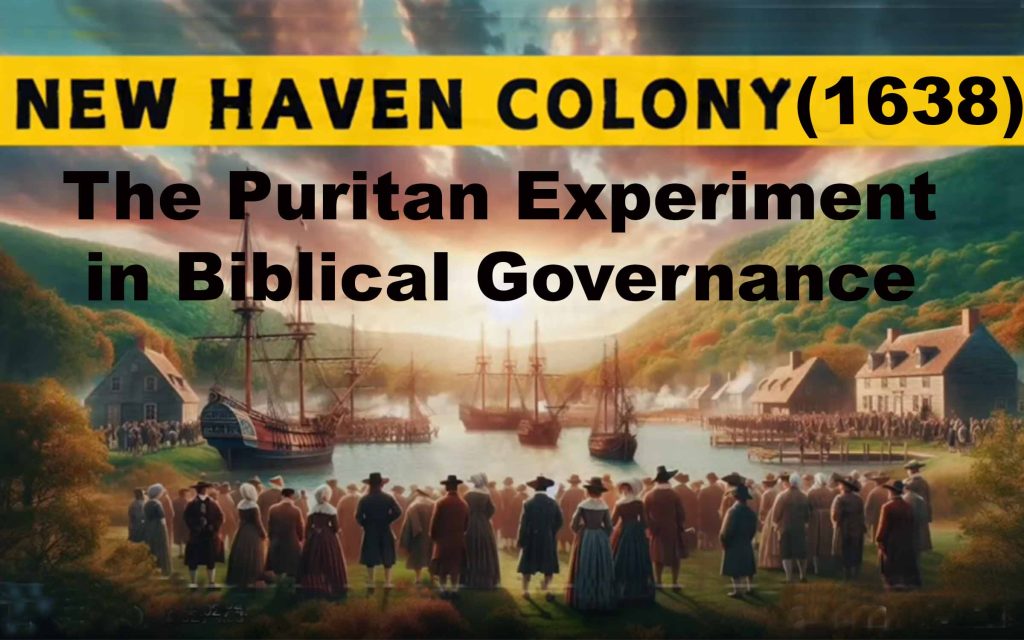
In 1638, John Davenport and Theophilus Eaton founded New Haven Colony with a radical vision: to create a Puritan society governed solely by the Bible. This video delves into the founding of New Haven, its ambitious goals for commerce and religious purity, the community’s governance, and how its vision ultimately shaped its future. Click here to discover how this Puritan experiment in biblical governance influenced early colonial America in a four and a half hour video posted on September 4, 2025 by ChronoScape.



Unlike other colonies, New Haven was based on a strict religious framework where church membership determined political rights.



The story begins with John Davenport, a fiery Puritan minister, and Theophilus Eaton, a wealthy and influential London merchant. Both men were dissatisfied with life in England under Charles I where Puritans faced increasing persecution for resisting the authority of the Anglican Church. In 1636, the English settlers quickly negotiated with the Quinnipiac Tribe, acquiring land through agreements that, while framed as purchases, were often one-sided. In 1637, a small group of Puritans followed Davenport and Eaton across the Atlantic.



Whereas Massachusetts had a charter and some measure of English legal tradition guiding it, New Haven deliberately rejected English common law. Instead, Davenport and Eaton insisted that the Bible alone should serve as the rule of government. This was radical even by Puritan standards. The settlers hoped to build a thriving port city, competing with Boston and serving as a gateway for trade with England and the West Indies. However, the colony’s commercial ventures often failed, plagued by poor planning and misfortune at sea.
